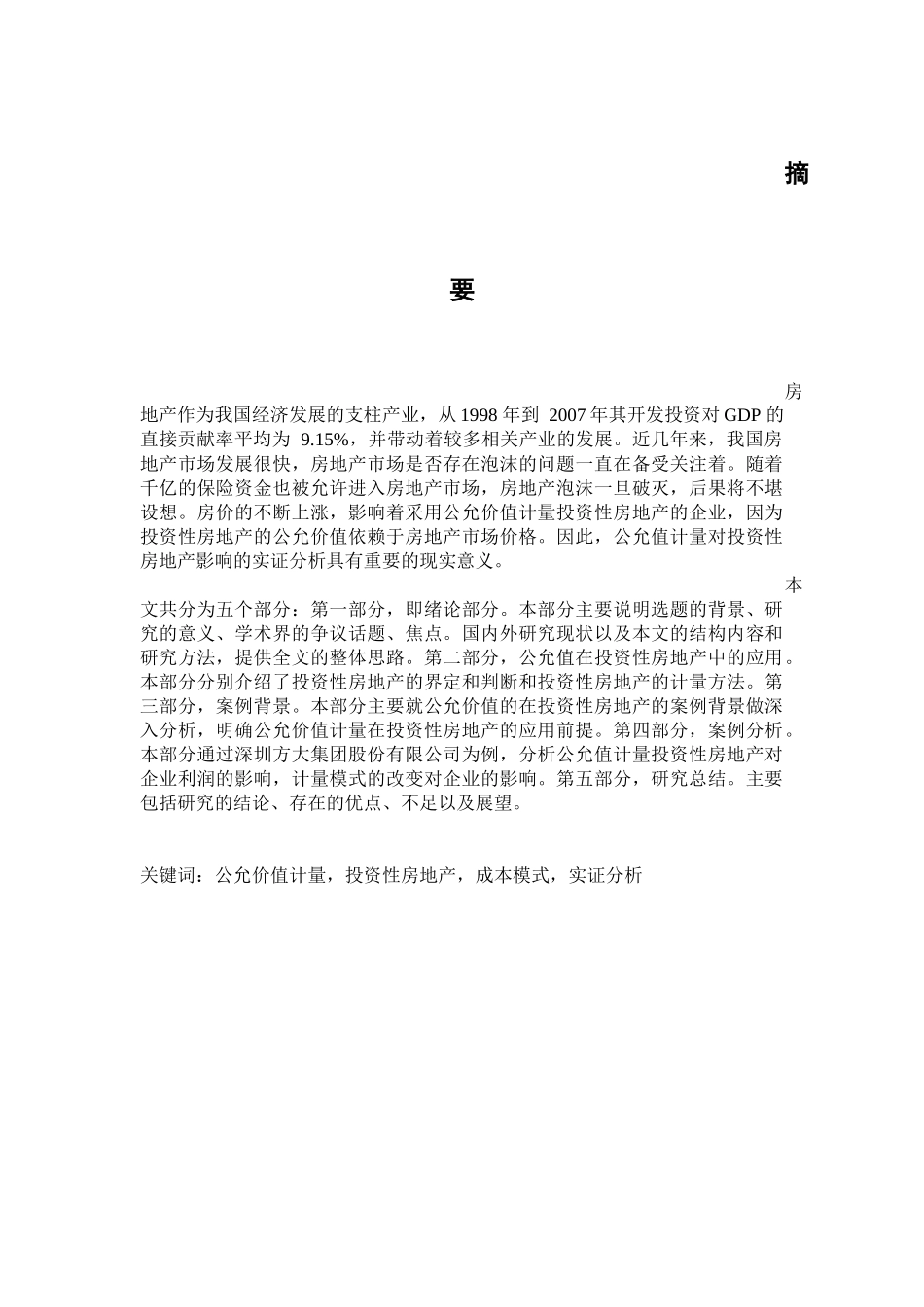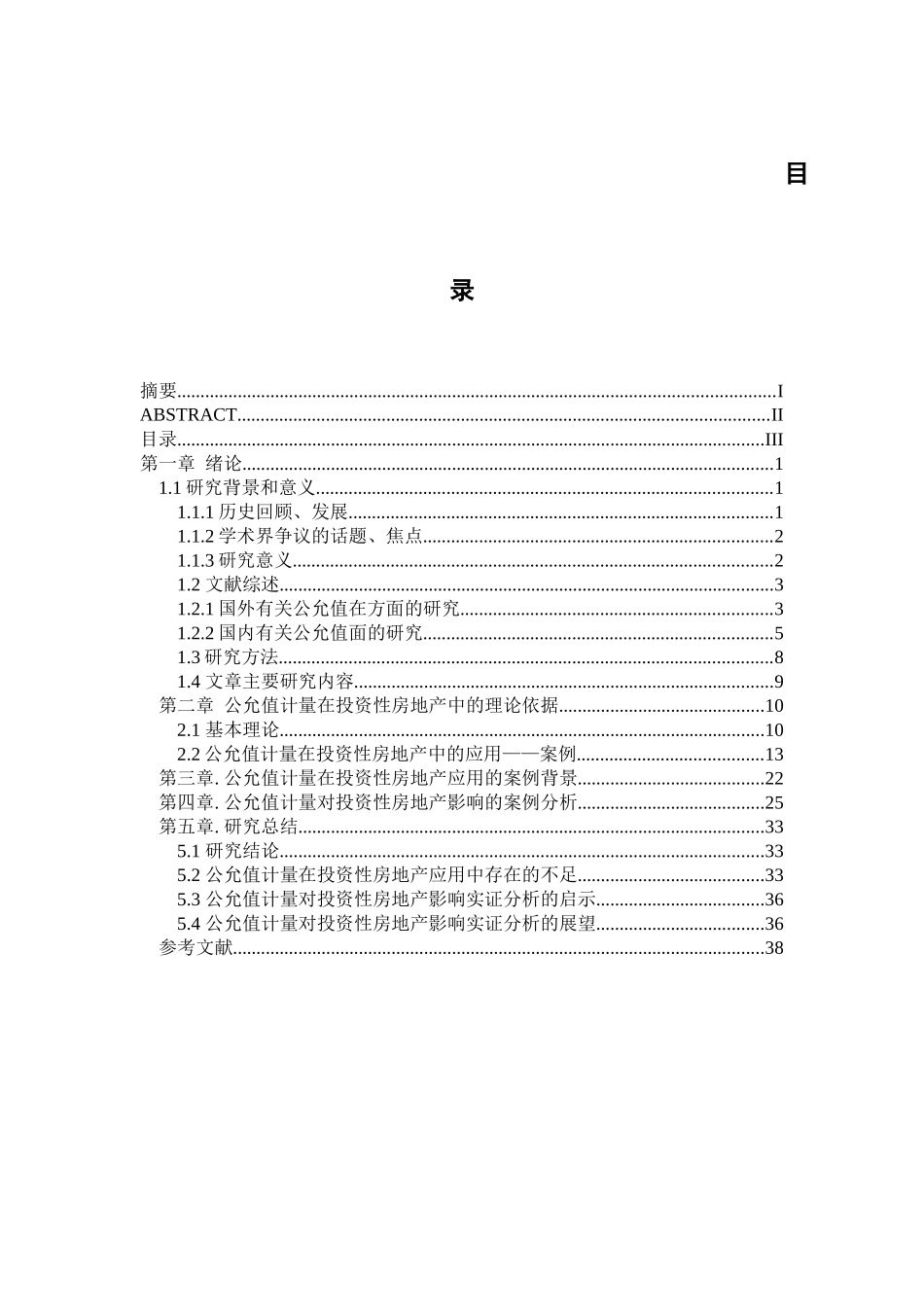摘要房地产作为我国经济发展的支柱产业,从 1998 年到 2007 年其开发投资对 GDP 的直接贡献率平均为 9.15%,并带动着较多相关产业的发展。近几年来,我国房地产市场发展很快,房地产市场是否存在泡沫的问题一直在备受关注着。随着千亿的保险资金也被允许进入房地产市场,房地产泡沫一旦破灭,后果将不堪设想。房价的不断上涨,影响着采用公允价值计量投资性房地产的企业,因为投资性房地产的公允价值依赖于房地产市场价格。因此,公允值计量对投资性房地产影响的实证分析具有重要的现实意义。本文共分为五个部分:第一部分,即绪论部分。本部分主要说明选题的背景、研究的意义、学术界的争议话题、焦点。国内外研究现状以及本文的结构内容和研究方法,提供全文的整体思路。第二部分,公允值在投资性房地产中的应用。本部分分别介绍了投资性房地产的界定和判断和投资性房地产的计量方法。第三部分,案例背景。本部分主要就公允价值的在投资性房地产的案例背景做深入分析,明确公允价值计量在投资性房地产的应用前提。第四部分,案例分析。本部分通过深圳方大集团股份有限公司为例,分析公允值计量投资性房地产对企业利润的影响,计量模式的改变对企业的影响。第五部分,研究总结。主要包括研究的结论、存在的优点、不足以及展望。关键词:公允价值计量,投资性房地产,成本模式,实证分析AbstractAs a pillar industry in china , real estate drives forward the development of more related industry. In recent years, China's real estate market is growing rapidly, and meanwhile it causes so many people to pay close attention to the real estate market’s bubble problem. As more than hundred billion insurance funds are also allowed to entered the real estate market, it will make the bubble would be more serious,once the bubble bursts, the consequences would be disastrous. The real estate price rises, affecting many companies who used Fair Value Measurement Model in the Investment Real Estate, because the fair value of the Investment Real Estate depends on the real estate’s price market. Therefore, the effect of fair value measurement on investme...


